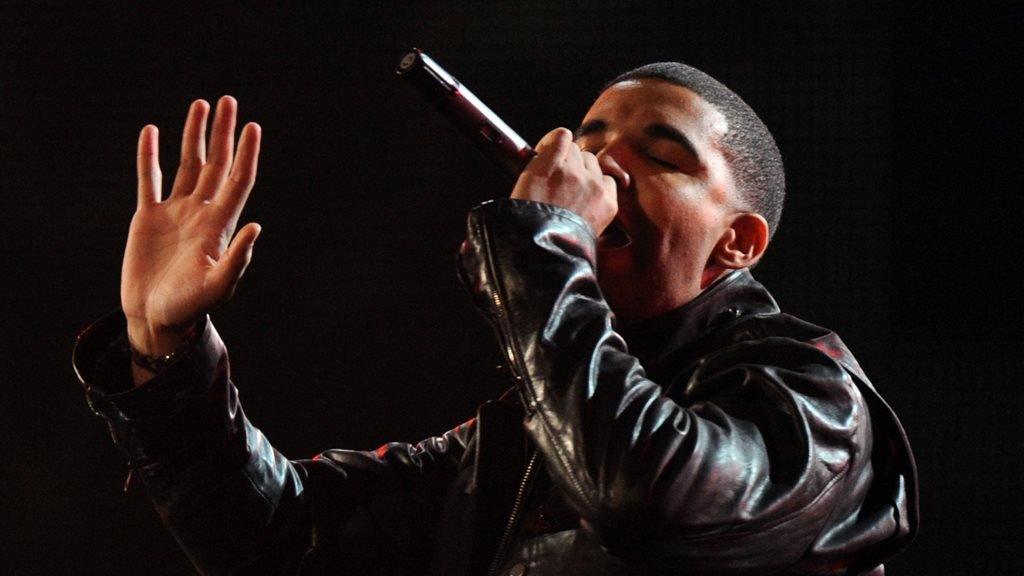Has streaming broken the UK singles chart?
- Published
Fewer records than ever before are entering the UK top 40 as fans keep streaming the same songs over and over again. But what does that mean for music and new artists in particular?
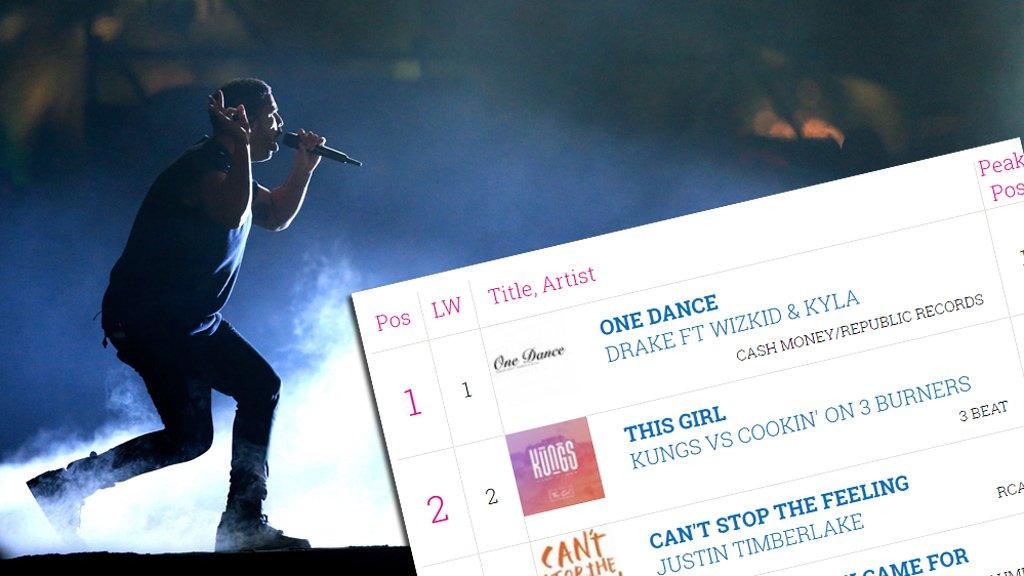
Drake's One Dance has been number one for the past 14 weeks
He only came for One Dance... but Drake has been hogging the limelight for three months.
On Friday, the star's single notched up a 14th week at number one - meaning he could soon break the Bryan Adams barrier, and become the UK's longest-running chart topper.
But behind that huge success lies another story, because One Dance isn't the best-selling record of the last seven days. It isn't even in the top 10.
In fact, Drake's single only topped the sales-only chart in the first three weeks of its reign. It's only the inclusion of streaming data (where 100 plays count as one sale) that has given him a lock on the number one spot. And that's something that's starting to worry the music industry, because now that the charts measure consumption rather than purchases, they have practically ground to a halt.
In the first six months of 2016, there were 86 new entries in the UK singles chart. Ten years ago, that figure was 230.
And while artists like Beyonce, Rihanna and Calvin Harris continue to rack up the hits, new artists are being pushed out of the race.
"I think it's a problem," says Harry Magee, who manages acts like One Direction and Little Mix. "There's been a lot of talk about how hard it is to break a new act at the minute - and it certainly is. It's harder for artists and it's harder for the industry. It's a problem we're still getting our heads around."
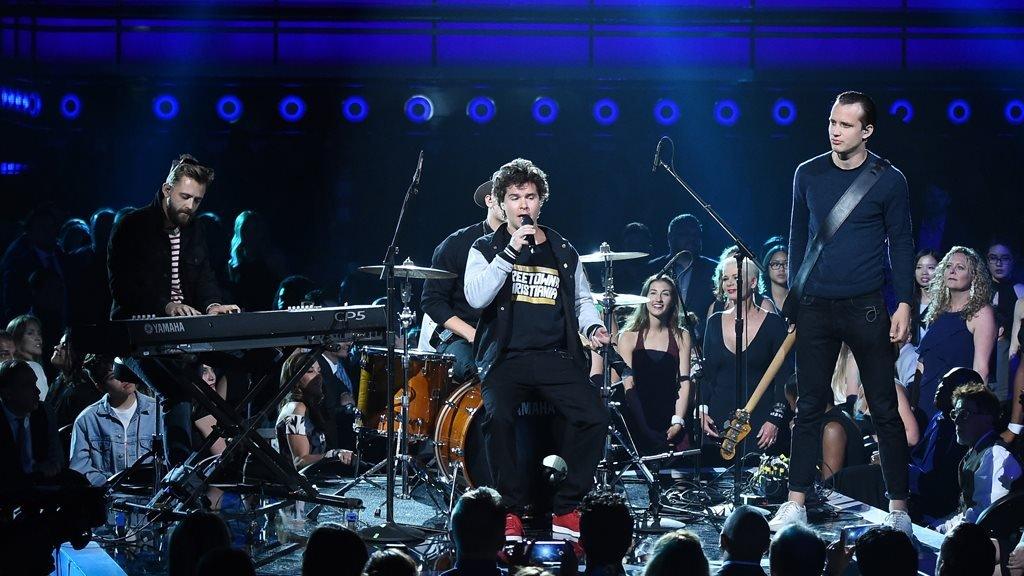
Danish band Lukas Graham are one of the few new bands to top the UK chart this year
Radio 1's head of music, Chris Price, says he's monitoring the slowdown closely.
"We're asking serious questions because, as a new music station, we have to keep pushing the agenda forward," he says.
"So we're even having to ask whether we keep Drake on the playlist. It would be, I think, unprecedented to take the number one record off the Radio 1 playlist. It didn't happen with Bryan Adams… but we've got new music to break. We've got to satisfy our listeners' impatience to hear new music."
But is it really the fault of the charts that new British artists are struggling? Newcomers Lukas Graham (from Denmark) and Shawn Mendes (from Canada) both reached number one for the first time this year; while Zara Larsson (Sweden) and DNCE (USA) have made top 10 debuts.
"There are two schools of thought," says Price. "One is that the chart has slowed down to such an extent that it's preventing new artists from rising up into the upper echelons.
"Another school of thought is that there just isn't the quality of new repertoire coming through to challenge those massive big-hitters - the Drakes and the Beyonces and so forth.
"To some extent, the numbers bear that out. If you look at Drake's sales last week, it was something like 45,000. That wouldn't have put him at number one in any other week of the year."
Power of playlists
One act who have breached the top 10 this year are Clean Bandit, whose new single Tears went straight into the chart at number six and has hung around ever since.
"Why? Well, I'd like to think that the song sticks out," says the song's writer and saxophonist Jack Patterson. "It's a bit unusual. People are latching onto it for that reason."
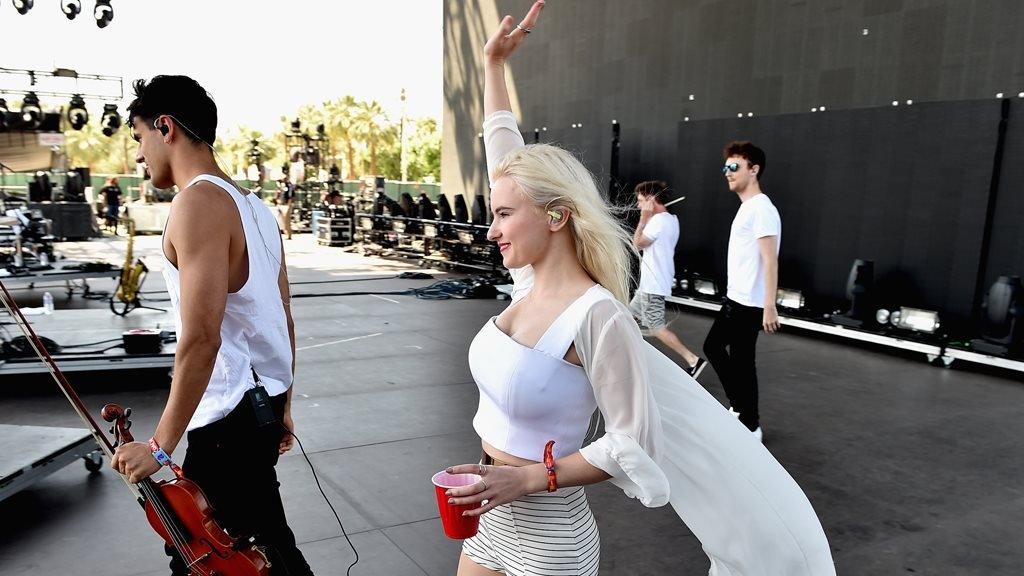
Clean Bandit's Tears is one of only seven songs to go straight into the top 10 this year
The band are well-placed to exploit streaming's dominance of the charts, having started off on YouTube making music to soundtrack short films before becoming a fully-fledged band.
Their breakout single Rather Be was, at one point, the most streamed song ever on Spotify - but even they have had to adapt to the new landscape.
"Streaming is so important for the actual charts that our label pushed for multiple versions of Tears to satisfy various different streaming trends," Patterson reveals. "So we made a solo piano version, for instance, and an acoustic version.
"It shows that people who wouldn't normally be buying chart music are having a real impact. I'm thinking, 'What? Can I do a solo jazz piano album now and it'll potentially get to number one?'"
Rising songwriter Billie Marten, who featured on the BBC's Sound of 2016, is part of a new generation of artists who grew up with streaming, and was discovered on YouTube. Unsurprisingly, she sees it as less of a threat than an opportunity.
"From the artist's point of view, as soon as I get a song recorded, it needs to be out and then I can get on with other things," she says, marvelling at how quickly she can share new music with fans.
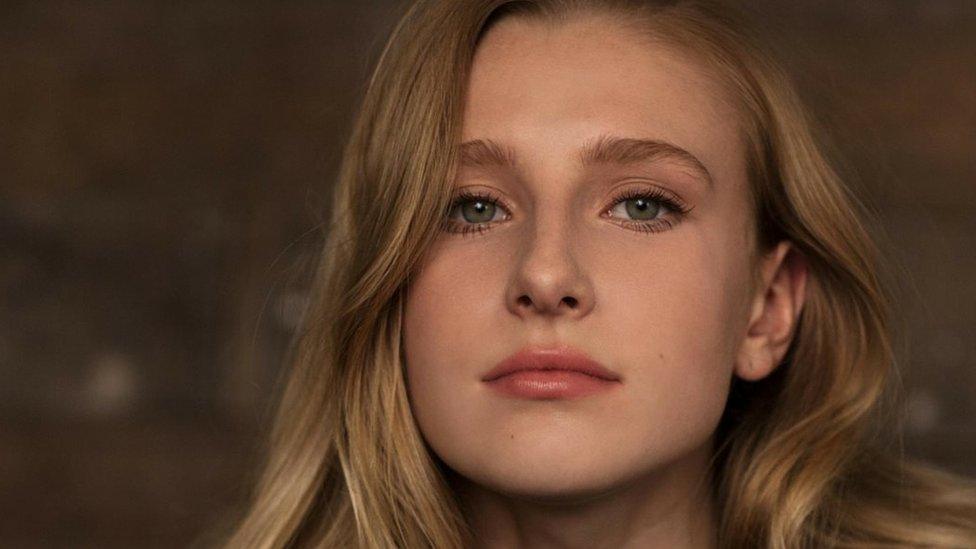
Billie Marten: "Streaming has been the source of everything in my career"
"And Spotify are really helping me out by putting my music onto playlists. They're really exploiting that in a great way. I'm really thankful for that because I think, otherwise, people wouldn't listen."
Indeed, curated "new music" playlists on services like Spotify, Apple Music, Deezer and Google Play could be the key to breaking the chart gridlock - although there is some concern that these playlists are programmed globally, potentially putting UK artists at a disadvantage.
Arctic Monkeys manager Ian McAndrew agrees: "In my experience, streaming serves as a platform through which music is being discovered. So while it may distort the charts, it serves as an access point for new music, and I think that's got to be a good thing."
Perhaps it means the charts are becoming irrelevant - at least as the gold standard of success. Bands now look at ticket sales, or engagement on social media as indicators of their reach and impact. And those are the things, rather than hit singles, which traditionally sustain careers.
"Success just doesn't happen overnight anymore, and that can be a good thing," says Magee. "Artists need to go out there and learn their craft in every way - whether that's writing, recording or playing live.
"The real artists, the ones who are prepared to put the work in, will get there in the end. There'll just be fewer of them."

Follow us on Twitter @BBCNewsEnts, external, on Instagram at bbcnewsents, external, or email entertainment.news@bbc.co.uk, external.

- Published11 July 2016
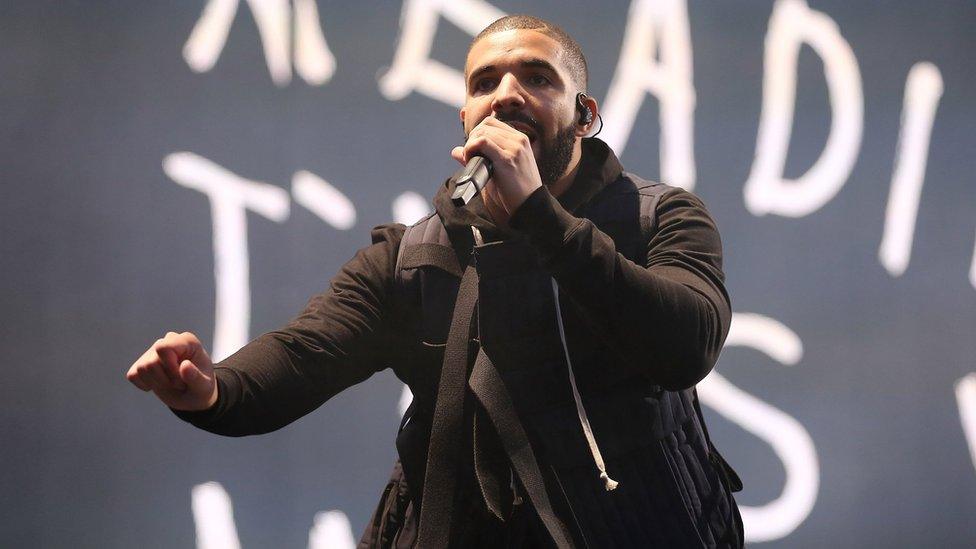
- Published8 July 2016
